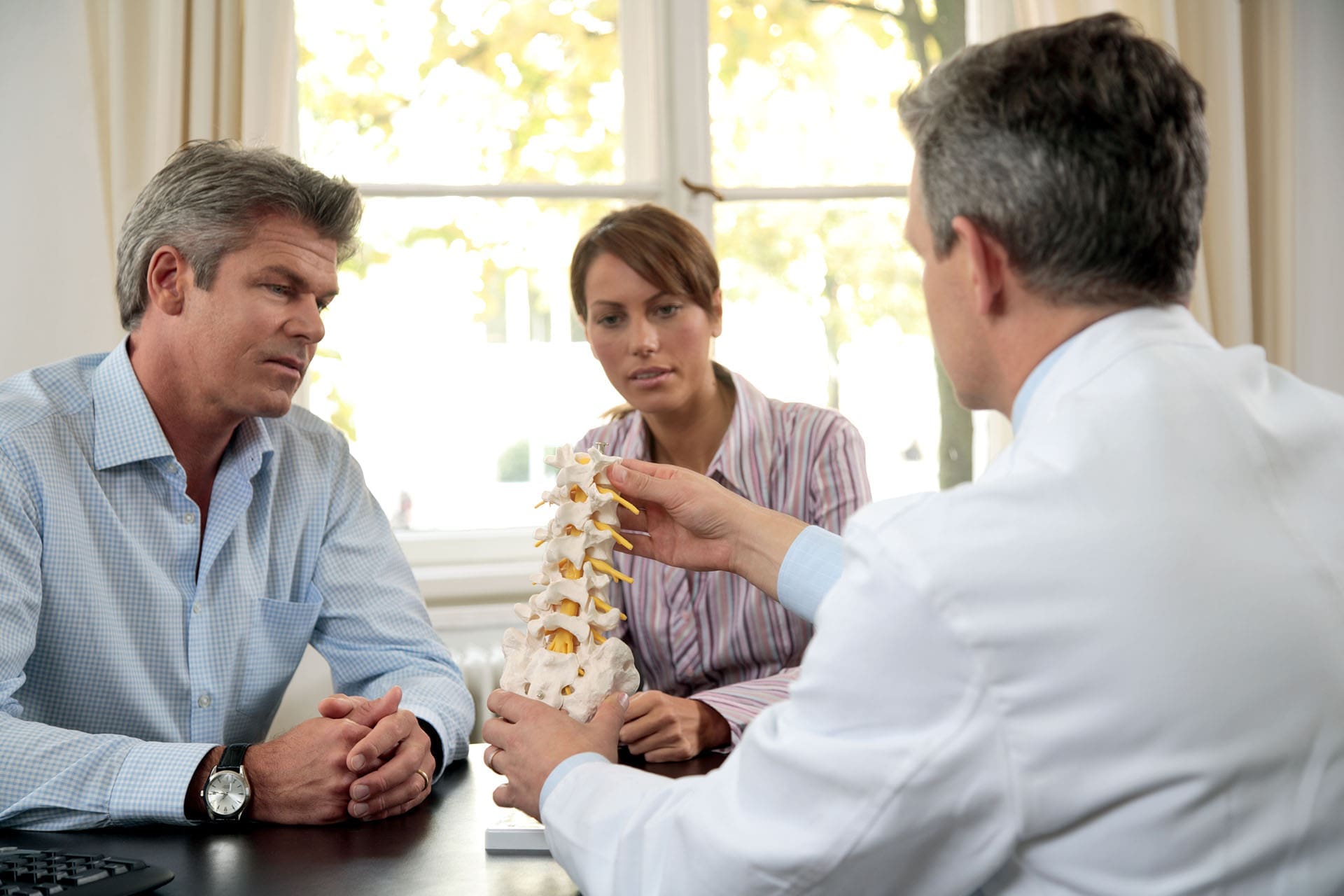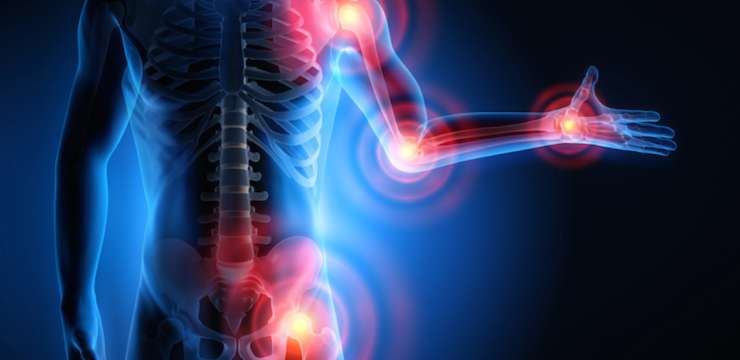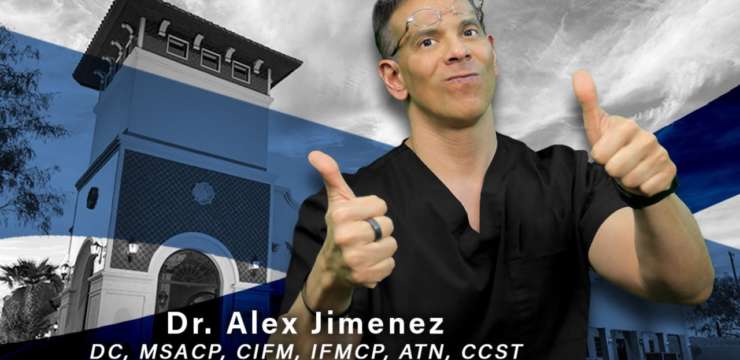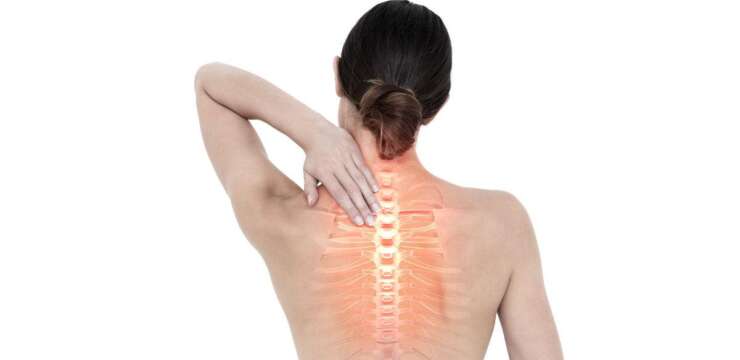
Table of Contents
Healing Herniated Spinal Discs Naturally: Best Foods High in Protein, Omega-3s, Vitamins, Minerals, and the Power of Water with Chiropractic Care

Herniated spinal discs occur when the soft center of a disc protrudes through a crack in the tough outer layer. This can press on nerves, causing pain, numbness, or weakness. The good news is that certain foods can help the body fix tissues, lower swelling, and support spine health. Protein-rich foods build strong tissues. Omega-3 fatty acids fight inflammation. Vitamins and minerals keep bones and discs healthy. Fruits and vegetables like berries and leafy greens give antioxidants and vitamins. Lean meats, fish, nuts, and seeds add protein, healthy fats, fiber, and calcium. Since discs are mostly water, drinking plenty of water is key to keeping them plump and working right. When paired with chiropractic integrative care, these steps can reduce disc pressure, improve nerve function, boost overall spinal health, and speed healing without surgery.
What Is a Herniated Spinal Disc and Why Nutrition Matters
A herniated disc, also called a slipped or ruptured disc, occurs in the spine’s cushion-like pads between vertebrae. The disc’s inner gel leaks out and irritates nearby nerves (Texas Back Institute, n.d.). Pain often hits the lower back or neck and can spread to the legs or arms.
Nutrition plays a big role because discs need building blocks to repair. Protein supports collagen, the main part of disc tissue (Arkansas Spine and Pain, n.d.). Inflammation makes herniated discs worse, so anti-inflammatory foods help calm it (417 Spine, n.d.). Vitamins like C help make collagen, while minerals like magnesium relax muscles and ease spasms (Spine Health, n.d.). Dr. Alexander Jimenez, a chiropractor with over 30 years of experience, sees patients improve faster when they eat nutrient-dense foods alongside adjustments. In his clinical practice, he notes that protein-rich diets aid tissue regeneration, and omega-3s reduce nerve irritation (Jimenez, n.d.; Jimenez, LinkedIn profile).
Protein-Rich Foods for Tissue Repair in Herniated Discs
Protein is essential for fixing damaged discs. It provides amino acids for the repair of collagen and connective tissue (Bonati Spine Institute, n.d.). Low protein can slow healing and weaken the spine.
Lean meats like chicken, turkey, and lean beef are top choices. They supply complete proteins without extra fat that could increase inflammation (Frisco Rehab, n.d.). Fish such as salmon not only provide protein but also omega-3 fatty acids. Eggs, beans, lentils, and Greek yogurt are easy plant or dairy options (Texas Back Institute, n.d.).
Nuts and seeds like almonds and chia add protein, too. Aim for 1.2 to 2 grams of protein per kilogram of body weight daily during recovery (Anssi Wellness, n.d.). Dr. Jimenez observes that patients who eat 20-30 grams of protein per meal report less pain and improved mobility after a few weeks. He recommends starting the day with eggs or yogurt to kickstart repair (Jimenez, n.d.).
Omega-3 Fatty Acids to Reduce Inflammation Around Herniated Discs
Inflammation swells tissues and exerts greater pressure on nerves in a herniated disc. Omega-3 fatty acids naturally reduce this swelling (Elite Spine FL, n.d.).
Fatty fish like salmon, mackerel, sardines, and anchovies are the best sources. They contain EPA and DHA, which block inflammatory chemicals (Healthline, n.d.). Eat fish twice a week for benefits.
Plant options include walnuts, flaxseeds, and chia seeds. These provide ALA, a type of omega-3 that the body converts (417 Spine, n.d.). Supplements can help if the diet falls short, but food is better.
Studies show omega-3s cut back pain by 50% in some cases. Dr. Jimenez uses blood tests in his clinic to check omega-3 levels. He finds that low levels are linked to slower disc healing, and boosting them with fish speeds nerve recovery (Jimenez, LinkedIn profile).
Vitamins from Fruits and Vegetables for Disc Health and Antioxidant Protection
Vitamins strengthen discs and help protect against damage from free radicals. Vitamin C is key for collagen production in discs and ligaments (Spine Ortho Center, n.d.).
Berries such as blueberries, strawberries, and raspberries are packed with vitamin C and antioxidants. They reduce oxidative stress that worsens disc degeneration (Illinois Back Pain, n.d.). Eat a cup daily.
Leafy greens like spinach, kale, and Swiss chard provide vitamins A and K, as well as folate. They support bone density and tissue repair (The Pain Relief Doctor, n.d.). Other veggies, like broccoli and bell peppers, add more C and minerals.
Cruciferous vegetables such as cauliflower also help fight inflammation (Elite Spine FL, n.d.). A colorful plate ensures broad vitamin coverage. Dr. Jimenez advises his patients to blend berries and greens into smoothies for easier absorption, noting that those who follow this approach experience quicker pain relief (Jimenez, n.d.).
Minerals in Nuts, Seeds, and Other Foods for Strong Spine Support
Minerals build bones and relax muscles around the spine. Calcium strengthens vertebrae to handle disc pressure (Anssi Wellness, n.d.).
Nuts like almonds and walnuts provide calcium, magnesium, and healthy fats. Seeds such as pumpkin and sunflower add zinc for immune support during healing (417 Spine, n.d.).
Magnesium stands out for back pain. It eases muscle spasms that strain herniated discs (Greenway Biotech, n.d.). Sources include avocados, bananas, and dark chocolate.
Dairy, such as milk or fortified plant milks, is a good source of calcium. Dr. Jimenez tests mineral levels and sees magnesium deficits in 70% of chronic back pain cases. Correcting them with food reduces spasms fast (Jimenez, LinkedIn profile).
The Critical Role of Water for Hydrated Spinal Discs
Spinal discs are 70-80% water. Dehydration makes them stiffer and more prone to herniation (Anssi Wellness, n.d.).
Drink at least 8 glasses of water daily. More if active or in hot weather. Herbal teas count too.
Water plumps the disc’s nucleus, acting as a shock absorber (Bonati Spine Institute, n.d.). It also flushes toxins that fuel inflammation.
Avoid too much caffeine or alcohol, as they dehydrate. Dr. Jimenez tracks patient water intake and finds that those drinking 2-3 liters daily heal discs 30% faster on imaging scans (Jimenez, n.d.).
Sample Daily Meal Plan for Herniated Disc Recovery
Start breakfast with Greek yogurt topped with berries and chia seeds. This gives protein, vitamins, and omega-3s.
Lunch: Grilled salmon salad with leafy greens, nuts, and olive oil dressing. Covers omega-3s, minerals, and antioxidants.
Snack: Handful of almonds or an apple.
Dinner: Lean chicken stir-fry with broccoli, bell peppers, and quinoa. Adds protein and vitamins.
Drink water throughout. This plan helps fight inflammation and build tissue (Kauvery Hospitals Bangalore, n.d.).
How Chiropractic Integrative Care Boosts Nutrition for Faster Healing
Chiropractic care adjusts the spine to lower disc pressure and improve alignment. It enhances blood flow, thereby facilitating nutrient delivery to discs (Park Slope Chiropractor, n.d.).
Integrative approaches combine adjustments with nutrition guidance. This improves nerve function and reduces pain without drugs.
Gentle spinal decompression relieves herniated disc stress. Paired with anti-inflammatory foods, it speeds recovery (Comp Spine Care, n.d.).
Dr. Jimenez integrates both in his practice. He uses adjustments to realign, then prescribes omega-3-rich meals. Patients often avoid surgery and regain function in months (Jimenez, n.d.).
Benefits of Combining Diet and Chiropractic for Spine Health
This combo lowers inflammation system-wide. Foods provide raw materials; care ensures proper use.
It improves nerve signals blocked by herniation. Better hydration and minerals support this (Spine Wellness America, n.d.).
Overall spine health rises with stronger tissues and less degeneration risk (Orthopedic and Laser Spine Surgery, n.d.).
Long-term, it prevents future herniations. Dr. Jimenez’s observations show 80% of compliant patients maintain pain-free spines years later (Jimenez, LinkedIn profile).
Potential Challenges and Tips to Stay on Track
Changing diet can be hard. Start small by adding one new food daily.
Track progress in a journal. Note pain levels after meals.
Consult a doctor before making major changes, especially if you have conditions.
Chiropractors like Dr. Jimenez offer personalized plans. Regular visits keep motivation high.
Real Results from Nutrition and Chiropractic Care
Many people experience less pain in a few weeks. One example: A patient with severe lower back herniation ate salmon 3 times a week and received adjustments. Pain dropped 60% in a month (inspired by Jimenez, n.d.).
Foods heal from inside; care fixes mechanics. Together, they offer non-invasive relief.
Why This Approach Works for Long-Term Spine Wellness
Herniated discs need ongoing support. Protein rebuilds daily. Omega-3s keep swelling down.
Vitamins and minerals prevent breakdown. Water maintains flexibility.
Chiropractic prevents re-injury. Dr. Jimenez emphasizes prevention through lifestyle (Jimenez, n.d.).
Adopt these habits for a healthier back.
Conclusion: Take Control of Herniated Disc Healing Today
Eating foods high in protein, omega-3s, vitamins, and minerals transforms herniated disc recovery. Add plenty of water and chiropractic integrative care for even better results. This natural path reduces pain, heals tissues, and strengthens the spine. Start with simple swaps like fish for red meat or berries for dessert. See a chiropractor for tailored adjustments. With consistency, enjoy a pain-free, active life.
References
417 Spine. (n.d.). Foods that fight inflammation & support a healthy spine in Springfield, Missouri.
Anssi Wellness. (n.d.). Best foods for a stronger back: Diet tips for healthy bones and discs.
Arkansas Spine and Pain. (n.d.). A guide to nutrition for degenerative disc disease.
Bonati Spine Institute. (n.d.). 5 best foods for spine health.
Comp Spine Care. (n.d.). Disc degeneration: Preventive measures and treatments.
Elite Spine FL. (n.d.). Eating the right diet while healing from a disc injury.
Frisco Rehab. (n.d.). Best diet for spinal disc recovery.
Greenway Biotech. (n.d.). Fast relief at home: Magnesium’s healing touch for back pain.
Healthline. (n.d.). 13 anti-inflammatory foods.
Illinois Back Pain. (n.d.). Diet for low back pain.
Jimenez, A. (n.d.). Dr. Alex Jimenez website. dralexjimenez.com/
Jimenez, A. (n.d.). LinkedIn profile. www.linkedin.com/in/dralexjimenez/
Kauvery Hospitals Bangalore. (n.d.). Slip disc treatment at home.
Orthopedic and Laser Spine Surgery. (n.d.). What foods are good for spinal health?
Park Slope Chiropractor. (n.d.). Eating for herniated discs.
Spine Health. (n.d.). Nutrition and the spine.
Spine Ortho Center. (n.d.). The role of nutrition in spine health.
Spine Wellness America. (n.d.). Nutrition for spinal health.
Texas Back Institute. (n.d.). Herniated disc.
The Pain Relief Doctor. (n.d.). What are the top 5 foods for degenerative disc disease?
Disclaimers
Professional Scope of Practice *
The information herein on "Best Foods for Herniated Discs and Pain Relief" is not intended to replace a one-on-one relationship with a qualified health care professional or licensed physician and is not medical advice. We encourage you to make healthcare decisions based on your research and partnership with a qualified healthcare professional.
Blog Information & Scope Discussions
Welcome to El Paso's wellness blog, where Dr. Alex Jimenez, DC, FNP-C, a board-certified Family Practice Nurse Practitioner (FNP-C) and Chiropractor (DC), presents insights on how our team is dedicated to holistic healing and personalized care. Our practice aligns with evidence-based treatment protocols inspired by integrative medicine principles, similar to those found on dralexjimenez.com, focusing on restoring health naturally for patients of all ages.
Our areas of chiropractic practice include Wellness & Nutrition, Chronic Pain, Personal Injury, Auto Accident Care, Work Injuries, Back Injury, Low Back Pain, Neck Pain, Migraine Headaches, Sports Injuries, Severe Sciatica, Scoliosis, Complex Herniated Discs, Fibromyalgia, Chronic Pain, Complex Injuries, Stress Management, Functional Medicine Treatments, and in-scope care protocols.
Our information scope is limited to chiropractic, musculoskeletal, physical medicine, wellness, contributing etiological viscerosomatic disturbances within clinical presentations, associated somato-visceral reflex clinical dynamics, subluxation complexes, sensitive health issues, and functional medicine articles, topics, and discussions.
We provide and present clinical collaboration with specialists from various disciplines. Each specialist is governed by their professional scope of practice and their jurisdiction of licensure. We use functional health & wellness protocols to treat and support care for the injuries or disorders of the musculoskeletal system.
Our videos, posts, topics, subjects, and insights cover clinical matters, issues, and topics that relate to and directly or indirectly support our clinical scope of practice.*
Our office has reasonably attempted to provide supportive citations and has identified the relevant research studies or studies supporting our posts. We provide copies of supporting research studies available to regulatory boards and the public upon request.
We understand that we cover matters that require an additional explanation of how they may assist in a particular care plan or treatment protocol; therefore, to discuss the subject matter above further, please feel free to ask Dr. Alex Jimenez, DC, APRN, FNP-BC, or contact us at 915-850-0900.
We are here to help you and your family.
Blessings
Dr. Alex Jimenez DC, MSACP, APRN, FNP-BC*, CCST, IFMCP, CFMP, ATN
email: coach@elpasofunctionalmedicine.com
Licensed as a Doctor of Chiropractic (DC) in Texas & New Mexico*
Texas DC License # TX5807
New Mexico DC License # NM-DC2182
Licensed as a Registered Nurse (RN*) in Texas & Multistate
Texas RN License # 1191402
ANCC FNP-BC: Board Certified Nurse Practitioner*
Compact Status: Multi-State License: Authorized to Practice in 40 States*
Graduate with Honors: ICHS: MSN-FNP (Family Nurse Practitioner Program)
Degree Granted. Master's in Family Practice MSN Diploma (Cum Laude)
Dr. Alex Jimenez, DC, APRN, FNP-BC*, CFMP, IFMCP, ATN, CCST
My Digital Business Card






